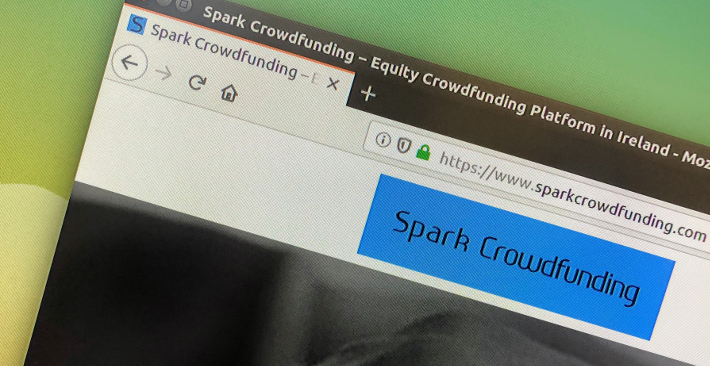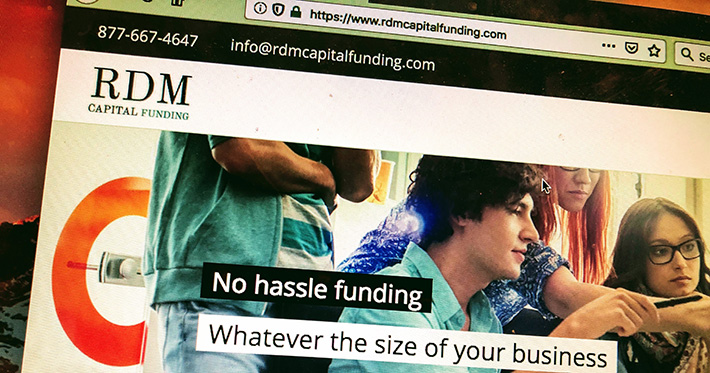Brendan Garrett was a Reporter at deBanked. Articles by Brendan Garrett
National Business Capital & Services Expands into Cannabis Funding with CannaBusiness Financing Solution
October 15, 2019 Today National Business Capital & Services (NBC&S) announced it has begun serving cannabis companies. Through its new program, CannaBusiness Financing Solution, NBC&S is now accepting applications for loans starting at a minimum of $10,000 from firms in the industry that are over one year old.
Today National Business Capital & Services (NBC&S) announced it has begun serving cannabis companies. Through its new program, CannaBusiness Financing Solution, NBC&S is now accepting applications for loans starting at a minimum of $10,000 from firms in the industry that are over one year old.
“The CannaBusiness Financial Solution will allow business owners to seamlessly obtain the capital they need, and allocate funding toward either hiring new employees, purchasing inventory, marketing strategies, or any other business need right away, without government regulations hindering growth opportunities or having to give up equity,” explained NBC&S President Joseph Camberato. “We’re not a bank and the lenders we work with aren’t banks either, so it falls into a different area of commercial lending.”
CannaBusiness is available in the 33 states where cannabis is legal, be it for medicinal or recreational uses, as well as in Canada.
“It’s a rapidly growing space, no pun intended,” joked Camberato when asked about the differences in funding cannabis companies compared to the industries NBC&S has served in its 12 years of business. “It would still be underwritten, just like one of our normal businesses. But we’re definitely going to want to know a little bit more about the business and understand what exactly they’re doing, how they’re operating, and exactly what are they’re focused on.” They’ll also examine if the business is in compliance with state laws. Qualifying cannabis companies must be in business for at least 1 year, with a minimum of $10K in monthly revenue. There is no minimum FICO score requirement.
 While it’s not the first funder for cannabis companies, NBC&S views the move as a step in the right direction to “get ahead of the curve” according to Camberato. “We’re living through a modern-day prohibition, I think in 20 years we’ll look back on it and talk about it with our grandchildren and be like, ‘wow’ … I don’t think people realize how big of a deal this really is, but it is a business and it is another industry that has bloomed in front of us, again no pun intended. I think it’s fascinating that we get to witness this and that we’re really at the forefront of it and helping folks get the funds they need to grow.”
While it’s not the first funder for cannabis companies, NBC&S views the move as a step in the right direction to “get ahead of the curve” according to Camberato. “We’re living through a modern-day prohibition, I think in 20 years we’ll look back on it and talk about it with our grandchildren and be like, ‘wow’ … I don’t think people realize how big of a deal this really is, but it is a business and it is another industry that has bloomed in front of us, again no pun intended. I think it’s fascinating that we get to witness this and that we’re really at the forefront of it and helping folks get the funds they need to grow.”
Jumping off from the politically charged word of ‘prohibition,’ NBC&S’ Vice President of Marketing, T.J. Muro, noted that he believed cannabis legislation to be one of the few issues that can be bipartisan, saying, “Out of everything today in our political climate, I think it’s the one thing that has unified people in the political parties. The liberal side appreciates the cultural influence and significance there, and then on the more conservative side it’s the tax revenue.”
The upcoming Senate vote on the SAFE Banking Act will put this theory to the test. The bill, which would allow the cannabis industry wider access to banking, has already passed the House.
Mecklenburg County Launches Small Business Loan Program
October 10, 2019 This week Mecklenburg County, North Carolina launched its Small Business Loan Program. Offering up to $75,000 dollars with fixed 2% interest rates, the county has appropriated $2.75 million to fund the program for its first year. Being managed by the Carolina Small Business Development Fund, the CSBDF will have the authority to sign off on which small businesses will receive loans.
This week Mecklenburg County, North Carolina launched its Small Business Loan Program. Offering up to $75,000 dollars with fixed 2% interest rates, the county has appropriated $2.75 million to fund the program for its first year. Being managed by the Carolina Small Business Development Fund, the CSBDF will have the authority to sign off on which small businesses will receive loans.
Split into two tiers, one for businesses operating for less than two years or who are without revenue and the other for companies operating for at least two years, both tiers offer a micro loan and a conventional business loan. The former of these being a loan of less than $50,000 and the latter being one of over $50,000. Included with these loans are entrepreneurship training and mentoring.
Among the stipulations and requirements for the loans are that applicants have an annual revenue under $1 million and that they should not have any open tax liens, unpaid judgments, or principal and business bankruptcy in the previous five years. This risk-adverseness may be the definitive difference between such publicly provided funds and their private counterparts.
Accumulatively, the CSBDF has invested $59.7 million into programs such as these so far, with 735 loans having been authorized thus far.
Puff, Puff, Pass the Bill: House Approves Cannabis Banking Bill, Forwards it to Senate
October 10, 2019 Last month the House of Representatives passed the SAFE Banking Act, which provides for the lifting of red tape preventing cannabis companies from accessing banks and lenders.
Last month the House of Representatives passed the SAFE Banking Act, which provides for the lifting of red tape preventing cannabis companies from accessing banks and lenders.
Currently, such businesses are unable to make use of these financial services as regulators have put an outright ban on such dealings given cannabis’s federal Schedule 1 drug classification.
Having been approved 321-103, the House vote appeared bipartisan with almost half of the voting Republicans being in favor of SAFE. However, this is just the first step for the bill, as now it will be passed onto the Republican-held Senate, and then if it is approved there, the president’s office. With Republicans having demonstrated split attitudes towards legalization it is unclear which way the vote will go.
Regardless, the victory in the House has been celebrated by cannabis advocates and lobbyists alike. Talking to NBC, Platinum Vape President George Sadler described the vote as “a blessing.” While Aaron Smith, the Executive Director of the National Cannabis Industry Association, said that “it’s incredibly gratifying to see this strong bipartisan showing of support in today’s House vote … We owe a great debt of gratitude to the bill sponsors, who have been working with us to move this issue forward long before anyone else thought it was worth the effort … This bipartisan legislation is vital to protecting public safety, fostering transparency, and leveling the playing field for small businesses in the growing number of states with successful cannabis programs.”
For now though, no date has been set for the Senate vote on SAFE. With this version having been introduced by Senators Cory Gardner (R-CO) and Jeff Merkley (D-OR), and the Banking Committee Chairman Mike Crapo having recently asserted that cannabis banking legislation is being considered by his chamber, it appears as if this second round of voting may also benefit from bipartisan support.
A Tough Neighborhood: Ashton Kutcher-Backed Startup Can’t Pay Employees
October 9, 2019 Neighborly, a San Francisco-based startup backed by Kutcher, announced yesterday that it won’t be able to pay its employees for the foreseeable future. In an internal memo that was viewed by Bloomberg, the decision to cut pay was described as “needed” due to the company’s current phase of change it is experiencing as it pivots from one marketplace to another.
Neighborly, a San Francisco-based startup backed by Kutcher, announced yesterday that it won’t be able to pay its employees for the foreseeable future. In an internal memo that was viewed by Bloomberg, the decision to cut pay was described as “needed” due to the company’s current phase of change it is experiencing as it pivots from one marketplace to another.
The business was founded in 2012 with the intention to connect investors to local projects through municipal bonds available in small increments. In July Neighborly announced its intentions to move away from this industry and cut 25% of its workforce, while in August CEO Jase Wilson wrote a Medium blog post discussing the company’s plan to shift into the information infrastructure market. Due to the municipal bonds market being “less reliable” than originally thought, Neighborly would no longer aid the raising of funds for projects such as a new fire truck in Lawrence, Kansas or new bike paths in Burlington, Vermont, instead it would prioritize the expansion of fiber-extensive broadband to communities it classifies as ‘under-connected.’
Or at least that was the plan. “As of tonight, we are not in a position to compensate you,” wrote Wilson in the internal memo before notifying employees that they wouldn’t be required to work going forward. Asked by Bloomberg whether or not this meant that Neighborly would be applying for bankruptcy protections, Wilson declined to comment but said that he didn’t see closure on the horizon. Instead, he asserted that the business’s investors “are all aligned on what we need to do, but this still comes with another difficult period of reorganization.”
Currently, Neighborly has projects in South Portland and Katahdin, Maine, as well as Stockton, California. It was reported that its previous efforts to develop Cambridge, Massachusetts using municipal bonds was not impactful, with the company only being credited by local authorities as a Senior Manager on 12 municipal bond transactions, most of which being under $20 million.
Kutcher’s Sound Ventures was part of a $5.5M funding round in 2015.
How Ireland’s Spark Crowdfunding Got its Start
October 5, 2019 “We’ve not invented anything new,” Chris Burge, CEO of Spark Crowdfunding, tells me. “We saw the rise of crowdfunding in Europe, the states, and the world and we thought, ‘well why doesn’t Ireland have one?’”
“We’ve not invented anything new,” Chris Burge, CEO of Spark Crowdfunding, tells me. “We saw the rise of crowdfunding in Europe, the states, and the world and we thought, ‘well why doesn’t Ireland have one?’”
We’re in the lobby of a Dublin hotel drinking coffee, right around the corner from Spark’s offices on South William Street. There are at least three other professional meetings going on over variations of hot drinks, the room serving as a haven from the uniquely cold-yet-clammy weather outside.
Burge tells me about how he came to be in alternative finance. An engineer by trade, Burge entered the field after both him and his business partner had found the traditional process of investing to be wanting. “Both of us had invested in the past and had found it cumbersome, long-winded, and expensive,” leading them to explore more accessible, less unwieldy options.
Thus, from such a hole in the market sprung Spark Crowdfunding. Offering equity investment options from as low as €100, Burge sought to streamline the investment by offering it via an online platform from which members can view pitch videos, pitch decks, and detailed documents.
 Established in early 2018, the company saw its first big success in August of that year with Fleet, an Irish business that allows cars owners to rent their vehicles to the public from their driveways as well as gas stations. Asking for €275,000, Fleet received this and more, with the total amount invested reaching €385,000.
Established in early 2018, the company saw its first big success in August of that year with Fleet, an Irish business that allows cars owners to rent their vehicles to the public from their driveways as well as gas stations. Asking for €275,000, Fleet received this and more, with the total amount invested reaching €385,000.
Allowing for choice when deciding which investors to choose from and how much to take from who, Burge says that flexibility is key to their platform and likens it to Dragons’ Den with much more than five potential investors.
And with bank loans for small businesses becoming increasingly more difficult to access, Spark is positioned similarly to crowdfunding in the US. “Where a company would have previously gone to Allied Irish Bank or Bank of Ireland to borrow €100,000 in order to get their business off the ground, they’re now finding it very difficult and nigh impossible as well to get these loans, so we found that a lot of companies are coming to us to do this.” In addition to such an investment, startups in Ireland may receive extra funding from Enterprise Ireland, a government organization that provides aid to indigenous businesses and will match investments up to a point so long as the company meets certain requirements.
Accompany this with the lack of regulation in the crowdfunding space in Ireland and it would appear that the industry is set to expand.
And on the topic of expansion, Burge is keeping most of his cards to himself. “We know that Ireland is a small country compared to the rest of Europe, or compared to the rest of the world, so there’s a limited amount of stuff that we can do here, and so do we want to grow? Yes. Are we going to go to the states? Probably not. But the rest of Europe? Yes, absolutely. Have we picked out a few countries? Yes, we have.”
Interest in State-Backed Digital Currencies Rising
October 4, 2019 This week, two House Representatives presented Federal Reserve Chairman Jerome Powell with a letter calling for the Fed to seriously consider the creation of a digital currency.
This week, two House Representatives presented Federal Reserve Chairman Jerome Powell with a letter calling for the Fed to seriously consider the creation of a digital currency.
Beginning their letter with, “As you are aware, the nature of money is changing,” French Hill (R-AR) and Bill Foster (D-IL) run through a brief history of money as we know it before relaying their central worry, “that the primacy of the U.S. Dollar [sic] could be in long-term jeopardy from wide adoption of digital fiat currencies.”
Such concern is bolstered by the knowledge that over 40 other countries are investigating the use of digital currencies, with Sweden, Uruguay, and China’s programs each being name dropped by Hill and Foster; as well as by comments by the President of the European Central Bank, Christine Lagarde, who noted that in the absence of digital currencies backed by central banks, private firms will be left to dominate the space, effectively bypassing banks, and ceding control of monetary policy as well as power to combat illegal financial activities such as money laundering.
Before signing off, the authors warn of the troubles that Libra, Facebook’s unlaunched cryptocurrency could release into the world of finance if the tech giant is allowed to run free of regulation; and they finish by asking Powell to consider a number of questions relating to the establishment of a US dollar digital currency.
Not found among these questions is the conundrum of whether a sovereign digital currency would be referred to as legal tender despite it being intangible.
Hill and Foster aren’t the first to raise this issue, in fact former Chairwoman of the Federal Deposit Insurance Corporation Sheila Bair wrote in Yahoo Finance last year urging the Fed to shift its focus. Naming the potential digital currency ‘FedCoin,’ Bair explains the benefits of such a creation, saying that during recessions the Fed could reduce the interest rate on FedCoin in order to encourage spending, while during boom years interest rates could be increased to avoid overheating of the economy. As well as this, Bair proposes that in the case of a downward economic spiral, the Fed could issue time-limited coins that will expire if not spent on consumption.
Although it isn’t all sunshine and economic prosperity in Bair’s assessment, as she also notes that FedCoin has the potential to be a massive disruption to credit availability, with its implementation meaning that the over $10 million which is currently deposited by customers in American banks could vanish overnight if every American moved their savings to FedCoin. Regardless, Bair concludes her article with the warning that “If it does not stay ahead of this technology, not only could banking be disrupted – but the Fed itself could also be at risk.”
Bair’s comments are matched by former Bank of England Governor, Mark Carney, who, at the Economic Policy Symposium in August, discussed how a digital currency backed by a coalition of central banks, or as he termed it, a synthetic hegemonic currency (SHC), could allow for economies to move away from the US dollar as the global hedge currency and, thus, remove themselves from the currency’s domineering influence.
Interestingly, Hill and Foster’s letter comes the same week as news of a sovereign digital currency in Venezuela. President Nicolás Maduro confirmed that his government has plans to develop payment methods based off Bitcoin and that the country would begin stockpiling cryptocurrencies for its international reserves. These developments will accompany Petro, the cryptocurrency issued by the Venezuelan government that is backed by the country’s oil and mineral reserves.
As noted by Decrypt, despite his history of supporting Bitcoin, Juan Guaidó, Venezuela’s other President whose claim to the position has been recognized by Donald Trump, has described his rival’s move toward a digital currency as a show of “desperation.” In true crypto form, Guaidó also lambasted Petro in 2017 for not being a real cryptocurrency as its value is determined by oil.
With the initial promise of cryptocurrency as the herald of a more egalitarian currency free of borders and regulators having been largely undelivered in the developed world, as such currencies are instead used for speculating and turning profits, Maduro is framing his decision to double-down on digital currencies as a return to the original vision.
“Donald Trump and his sanctions are blocking Venezuela from carrying out transactions in any of the world’s banks,” said the president this week. “There’s other formulas to pay, and it’s what we’re using, because our payment system works perfectly in China and Russia … Venezuela is working with the world of cryptocurrencies as a free national and international payments system … The finance minister and Venezuela’s central bank have new instruments which we will activate very soon so that everyone can do banking transactions, as well as national and international payments through the central bank’s accounts.”
Whether or not Maduro’s plan will actually fulfill the original hopes for Bitcoin and cryptocurrencies is unsure, what is certain however is that more and more world leaders and policy makers are beginning to consider digital currencies as an issue to be reckoned with, rather than something to hodl at arm’s length.
Avi Wernick and Boris Kalendarev Move to RDM Capital Funding
September 23, 2019 Avi Wernick and Boris Kalendarev are joining RDM Capital Funding as the new Director of Partnerships and Strategy and CFO/COO, respectively.
Avi Wernick and Boris Kalendarev are joining RDM Capital Funding as the new Director of Partnerships and Strategy and CFO/COO, respectively.
The move comes after a fruitful year for the company, with it securing a $7.5 million credit facility from Charleston Capital, an amount that it has since extended; upping its funding originations from $300-500,000 per month at the beginning of 2018 to over $2.5 million currently; and witnessing 300% growth over the previous 12 months.
Wernick is moving from BlueVine, where he was a Business Development Manager. Seeking to develop and create new opportunities for RDM, as well as ensure the stability of these prospects, Wernick says that he’s bringing with him the skills and lessons learned at the New Jersey-based funding company, believing that how he will operate in RDM will serve as a “nod to his time and the guys at BlueVine.”
Prior to this, Wernick had done consulting work for Morgan Stanley in the early 2010s. Saying that he “wasn’t enthralled by” the world of institutional finance, he moved to RDM during its launch year, 2015, before starting at BlueVine in February 2018. Speaking of his homecoming to RDM, Wernick notes that he is excited to return to the “blend of ideas” that he says is integral to RDM’s approach towards operations and culture.
Kalendarev echoes this, saying that himself, Wernick, and Reuven Mirlis, RDM’s CEO, have been friends outside of business for years and that he enjoys the overlap of his personal and professional connections. “It’s something we arrived at gradually, it wasn’t like, ‘hey, we’re all working in finance, let’s pool our efforts.’”
Coming from Santander, where he was a Vice President, Kalendarev will be focusing on the operations of RDM. Having been a Financial Advisor for Wachovia Securities during the early years of college, as well as beginning his time at Santander during the days of his senior year, Kalendarev has been in finance for over ten years. On his departure from the Spanish bank he said that it “was a very hard role to leave,” but that he savored the risk which came with building a less established financial entity, saying that “you’re more aligned with it, you’ve got skin in the game.”
On the pair joining, Mirlis had to say, “We’re very, very excited for both Avi and Boris. They have an immense amount of value and they’re going to be an integral part of our group going forward. We’re extremely excited to have them on board and to see what’s to come going forward.”
When asked about what exactly may come in the future for RDM, Mirlis noted he plans to reach 300% growth for a second year in a row.
On the topic of the recent COJ bill, the new hires were optimistic, with Kalendarev remarking that RDM stopped using the contracts over eight months ago and that he thinks “it’s good for the space.” “It’ll be a challenge for these companies who tried to get rich quick and take short cuts and not build a sustainable operation,” said Wernick. “You know regulation is a scary thing.”
Gone with the Wind: $35 Million Missing as Payroll Company Closes and President’s Home Raided
September 18, 2019 Knocking on the door of a lake-view house in Edinburg, NY last week, reporters from both the Times Union and Daily Mail were met with pleas from a woman to leave her property and notice that she would call 911 if they continued. This week the FBI come knocking instead.
Knocking on the door of a lake-view house in Edinburg, NY last week, reporters from both the Times Union and Daily Mail were met with pleas from a woman to leave her property and notice that she would call 911 if they continued. This week the FBI come knocking instead.
The woman is assumed to be Kim Mann, wife to Michael Mann, President of ValueWise Corp, who has recently vanished following the sudden closure of MyPayrollHR, a company belonging to ValueWise, and the disappearance of an estimated $35 million from employers who were using the company’s payroll services.
With his location currently unknown, Mann is at the center of a search for clarity as to what happened with the missing funds. Both the media, FBI, and victims of MYPayrollHR’s seeming misappropriation of funds are discussing his absence, with the last of these taking place in a Facebook group for those affected by the scandal.
The alarm bells began to ring on September 5th, when customers of MyPayrollHR were abruptly informed that the company would be shutting down that day. And they continued to ring when employers began receiving reports that their workers bank accounts had been docked the amount that should have been deposited for that pay period. Some victims have reported that they were credited twice for the same amount, and one employer has claimed that one of her employee’s had $1 million withdrawn from her account. The names on these transactions are a mix of the victims’ employers; MyPayrollHR; and Cachet Financial Service, a payroll processor that had been working with MyPayrollHR for twelve years.
Over 4,000 companies have been affected, with the number of employees impacted being in the tens of thousands. The unwarranted withdrawals have left many victims with negative balances, resulting in overdraft and late repayment fees.
Cachet similarly claims to be a victim, asserting that it risked losses of $26 million. Wendy Slavkin, General Counsel for Cachet, said last week in a Times Union interview that “as it stands today … the biggest victim, and really the only victim and victims, is Cachet … The employers are getting back their money, we are not.” This week it became clear that Cachet was responsible for withdrawing wages due from employers and depositing these in a holdings account, and that because of what Slavkin described as “manipulation,” these funds were deposited in accounts under Mann’s control. Cachet, realizing that it was now down $26 million, withdrew the amounts due to employees from their accounts.
Slavkin’s claim of Cachet being the singular victim has been decried by members of the Facebook group ‘victims of MyPayrollHR and CachetFS,’ which over 2,000 have joined. “How can you be general counsel for a bank that specializes in payroll and not understand how banking or payroll work?” Asked one user. “What is wrong with Wendy Slavkin?!” Asked another. And “Cachet Banq is just as scummy as MyPayrollHR has turned out to be,” asserted a third. One member of the group also stated their intentions to file a lawsuit against Cachet this week.
Meanwhile, other payroll companies have been active within the group. DailyPay has set up a $25,000 relief fund to aid victims pay off their overdraft and late fees, and Paylionce has been privately messaging members of the group offering their payroll services.
Vocal members have urged others to report their cases to the National Automated Clearing House Association, saying that they have helped with the recovery of their wages, especially those who are with Bank of America. While others have claimed that Cachet has partially refunded what was credited, restoring the first withdrawal to the account but not the second.
Currently, uncertainty remains as to what exactly happened with the $35 million that has gone missing. Michael Mann is seemingly nowhere to be found and no media outlet has been able to produce a photo of either Michael or his wife Kim. The former’s LinkedIn profile is sparse except for two entries in his work history as well as endorsements for, among other things, strategic planning and customer relationship management.
All that there is to work off is a panicked call that Mann made to the Edinburg Building Department on September 5th, in which he asked about a permit he had received the previous year to build a two-car garage with a bedroom and bathroom above it onto his home in Adirondack Park, which he noted might have to be sold.






























